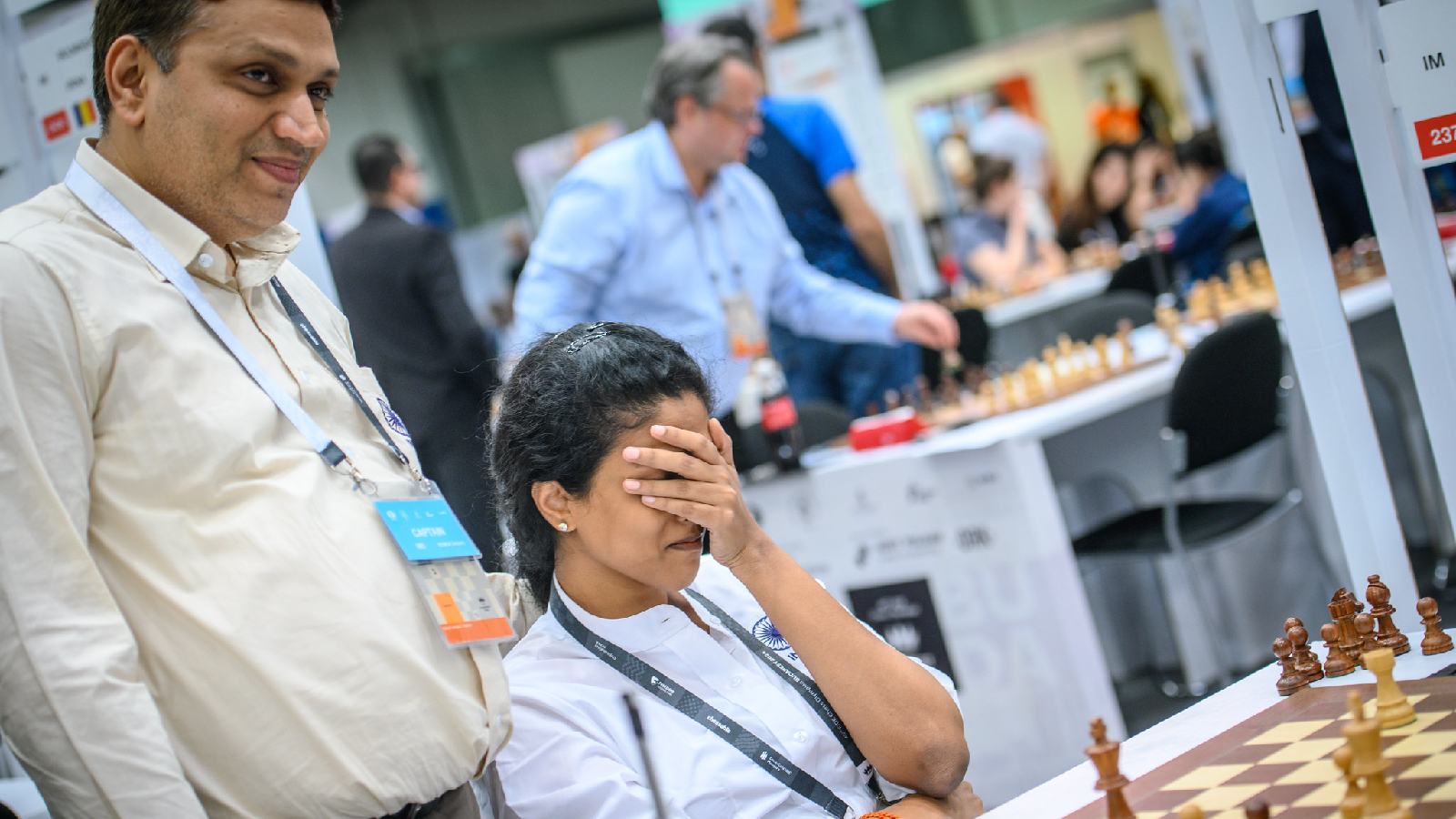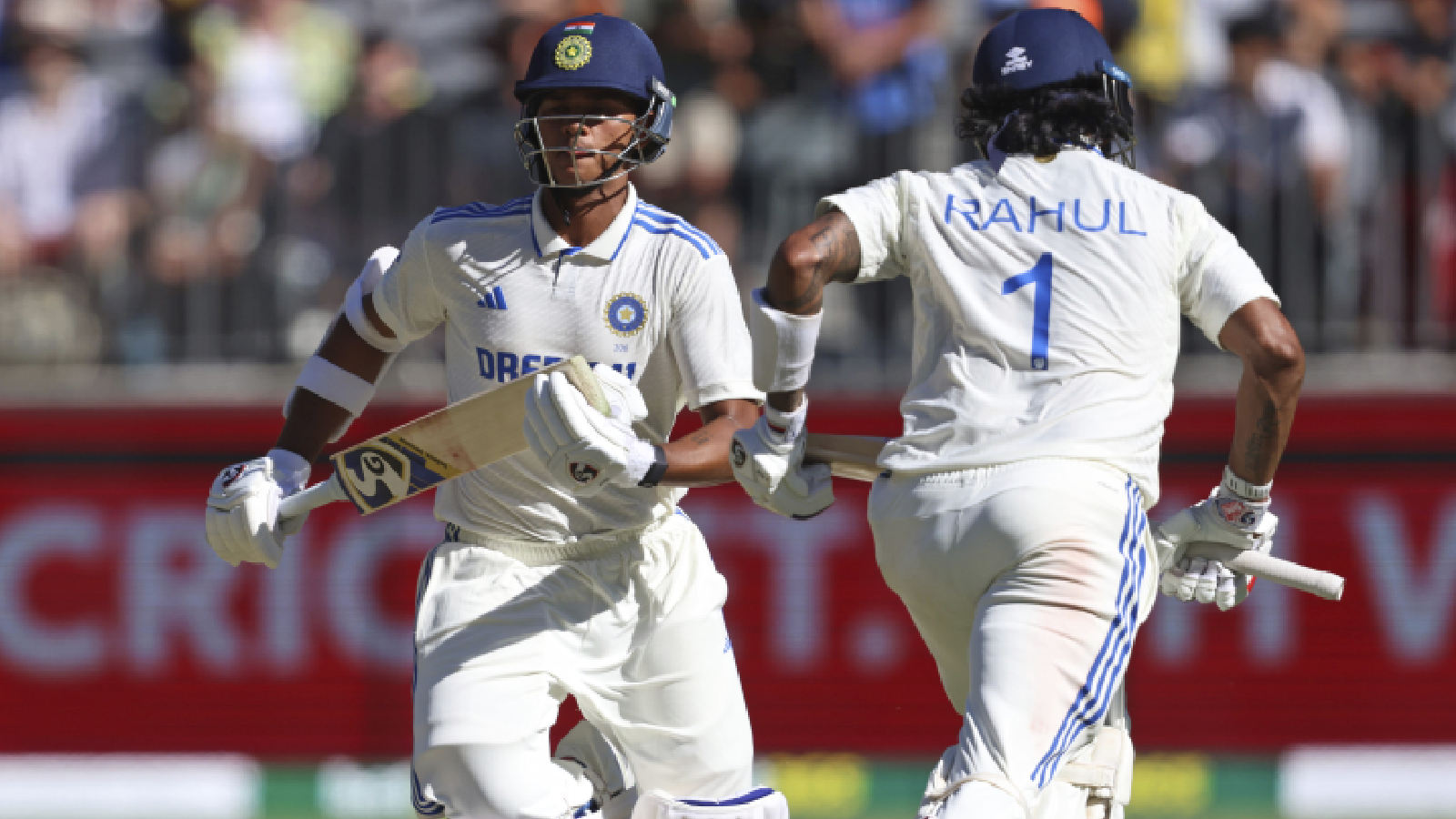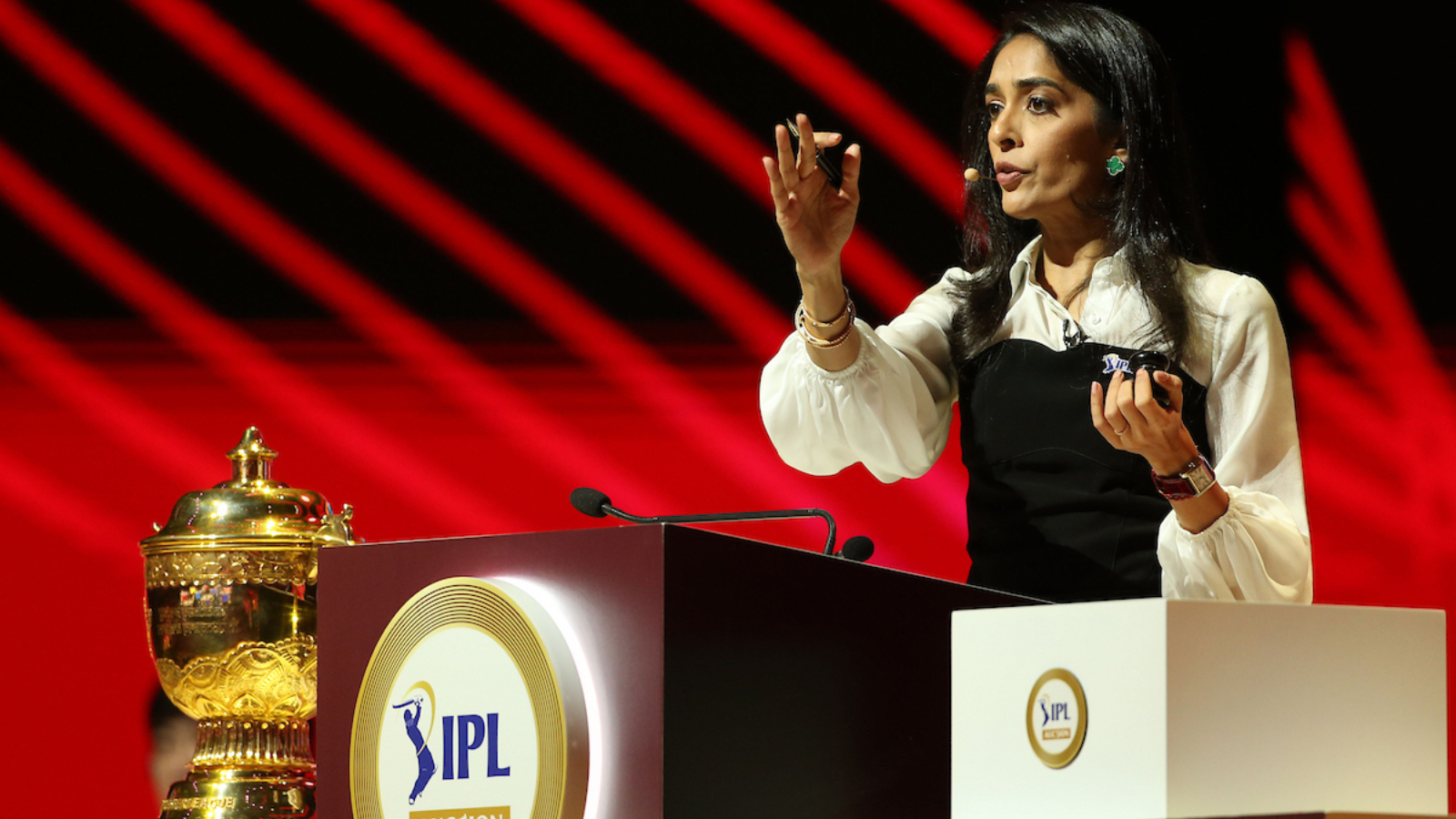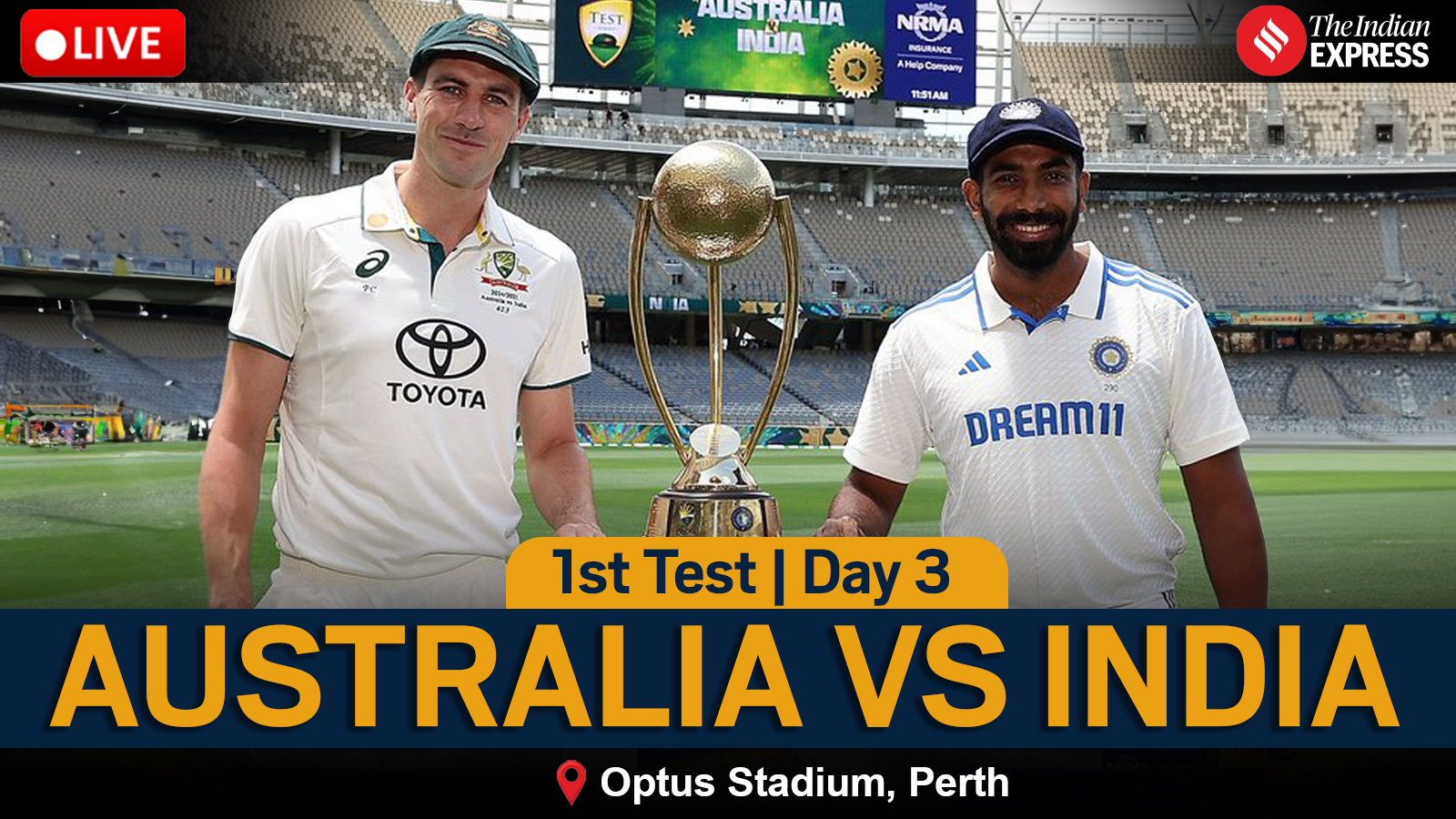The Indian women’s team endured some drama in Budapest but managed to snatch a gold medal from the hands of Kazakhstan in the final round of the Chess Olympiad.
Team India was leading the women’s standings at the Chess Olympiad after seven rounds, but round 8 saw them lose a close game to Poland and they were then held to a draw by Team USA. But the Indian women’s team claimed gold after their closest rivals Kazakhstan were held to a draw by USA, while the Indian women’s team beat Azerbaijan.
The team of Harika Dronavalli, R Vaishali, Divya Deshmukh, Vantika Agrawal and Tania Sachdev, with Abhijit Kunte as captain, was missing veteran Koneru Humpy, the top-ranked Indian woman in the world.
On the top board for India at the Chess Olympiad, Harika had a sobering tournament, losing three games out of the nine she played. On board 2, Vaishali also endured two defeats in back-to-back games.
But the Indian team was propelled to gold by 18-year-old Divya, who played in all 11 games and scored 9.5 points to secure an individual gold medal on board three. Vantika Agrawal, on board four, was also a revelation, going unbeaten in the tournament and winning six of her nine games. Tania Sachdev was a steady presence for India in the five games she played, not losing any one of them.
The Indian Express got Grandmaster RB Ramesh, one of the top coaches in India, to break down the Indian players’ styles and their personalities:
Harika Dronavalli at the Chess Olympiad
“Harika is a very solid player. Her style is something like that of (Pentala) Harikrishna. You can expect more draws when she plays and not as many defeats. But this time she had a few losses. She recovered from that very well, and at the right time: with the women’s team so close to winning gold. She has a lot of experience at the top level,” says Ramesh.

Harika herself admitted that her performance on Sunday was driven by guilt.
“This was a roller-coaster ride for me. I have never played so bad in a team championship. Always played solid. Never lost three games in a team event. This guilt was troubling me. At the last Olympiad, I couldn’t play in the last game because I couldn’t even sit. I was pregnant and was told I could deliver anytime. Somewhere, I was having that guilt that we wouldn’t do our best…,” Harika told FIDE after winning her last game. “I came into the Olympiads as a 13-year-old, 20 years back, with a dream to win an Olympiad medal, and finally, it happened today!”
Vaishali at the Chess Olympiad
Ramesh has seen Vaishali’s ascendency from close quarters, having shaped her career from the formative years.
“Vaishali did well for the most part, barring the two back-to-back defeats. She also recovered well from those two defeats. It’s a pretty decent performance from her,” was Ramesh’s assessment.
“While Harika is a positional player, Vaishali is an aggressive player. She has to get certain kinds of positions, then everything will be fine. If she gets into positions that she’s not comfortable with, she will struggle,” Ramesh points out.
To simplify a “positionally-inclined player” from an “aggressive player”, Ramesh reaches into a cricket analogy. “A positional player is like Rahul Dravid, kind of. An aggressive player is maybe a (Virender) Sehwag,” he says.
Divya Deshmukh at the Chess Olympiad
Ramesh heaps praise on 18-year-old Divya, who claimed an individual gold medal.
“Divya has been the best performer among the women. She’s consistently delivered when required. In tough situations, she has won the match. The whole year has been very good for her. In every tournament, she has been steadily gaining rating points. She’s in good form and in this tournament was even better.
“She’s an aggressively-inclined player, rather than a positionally-inclined one. All the players who are doing well at the Budapest Olympiad are active players. It’s the positionally-inclined players who are having a tough time. She’s quite aggressive as a player, a risk-taking player who plays for the win.”
Vantika Agrawal at the Chess Olympiad
Talking about India’s fourth board star, Vantika, who also won individual gold for board 4, Ramesh says: “Vantika also has been doing very well at the Olympiad. In the women’s section, Divya and Vantika would be the highlights. She’s delivered wins in critical moments for the team.”
Tania Sachdev at the Chess Olympiad
Talking about India’s fifth member, Tania Sachdev, Ramesh says: “Like Harika, Tania has not played in too many games at the Olympiad. Whenever she’s played, she’s delivered.”
I’m Manas Ranjan Sahoo: Founder of “Webtirety Software”. I’m a Full-time Software Professional and an aspiring entrepreneur, dedicated to growing this platform as large as possible. I love to Write Blogs on Software, Mobile applications, Web Technology, eCommerce, SEO, and about My experience with Life.






